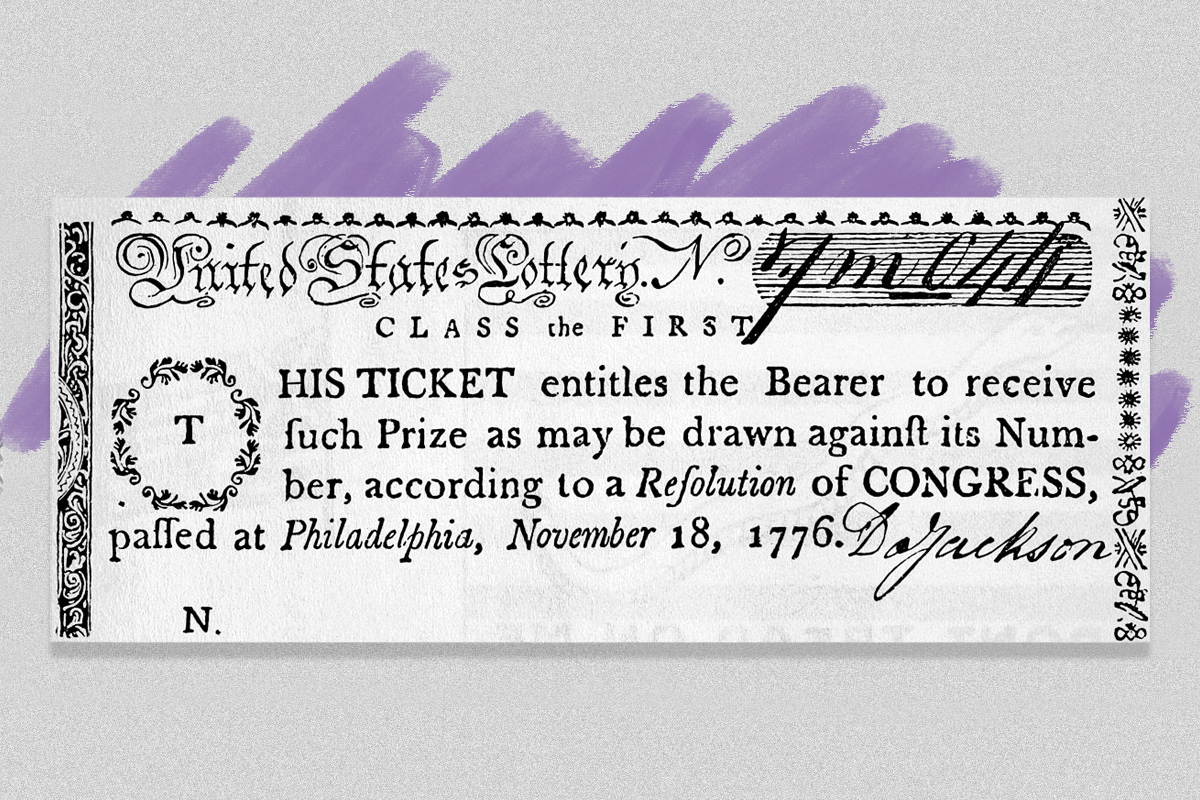Congress created a lottery to help fund the American Revolution.
While America declaring independence was a gamble that paid off in spades, luck wasn’t always on the government’s side. Look no further than the time the First Continental Congress authorized a national lottery to fund the Revolutionary War effort — which didn’t exactly go as planned.
The inspiration came, in part, from colonial lotteries that helped fund early settlements such as Jamestown and public works projects including streets and churches. This time, Congress hoped the proceeds from selling lottery tickets could be used to pay soldiers and manufacture munitions.
On November 18, 1776, it enacted a national lottery with the goal of raising $1.5 million (roughly $105.5 million today) in Continental currency, a form of paper money that was issued the year before to help finance the war. However, this speculative currency lacked solid backing and quickly depreciated, losing a chunk of its value by the time the lottery began; it was rendered virtually worthless by the time it ceased circulation in 1781. Because of this, as well as some marketing and distribution issues, the lottery failed to attract much public interest.
The lottery was set to be held in four phases, with the first drawing planned for March 1, 1777. But mismanagement and poor ticket sales caused it to be delayed until May 27, 1778. By that time, only 36,000 of the 100,000 tickets — which cost $10 each — had been sold. This saddled the fledgling government with a net loss in excess of $72,000 as it still had to fund organizational costs and pay out the winner.
The next drawing took place the following year, but the lottery quickly fizzled out after that. In the end, it generated less than $100,000 in funds for Congress to use as it saw fit — just 6.5% of the initial estimate. Having fallen short of its goal, the government instead relied on loans from France, donations from wealthy financiers, and other revenue sources to fund the war effort.







